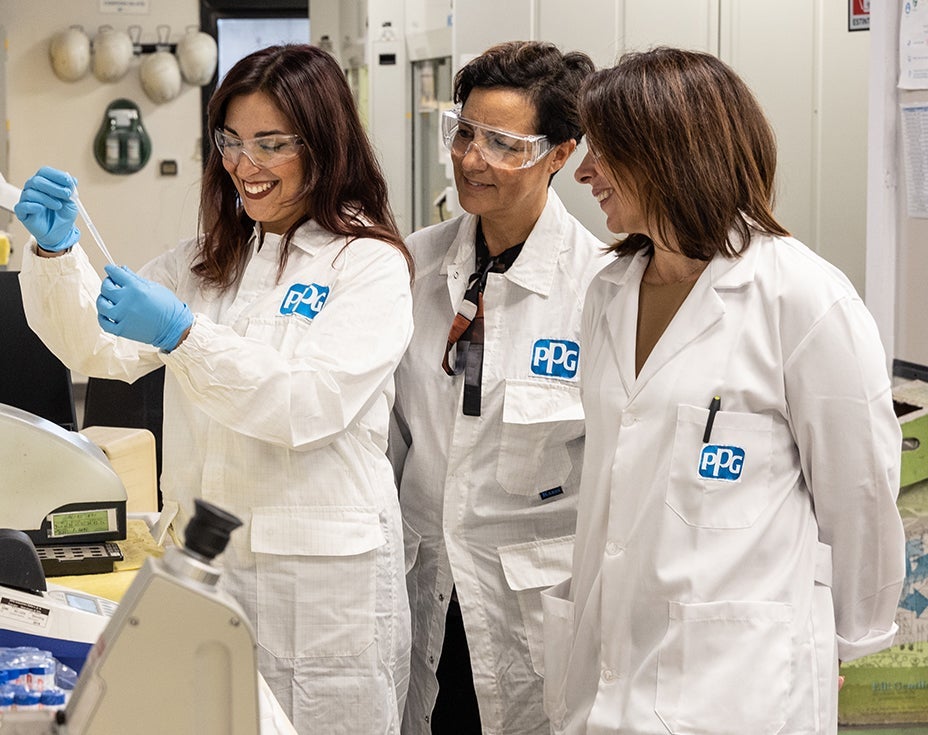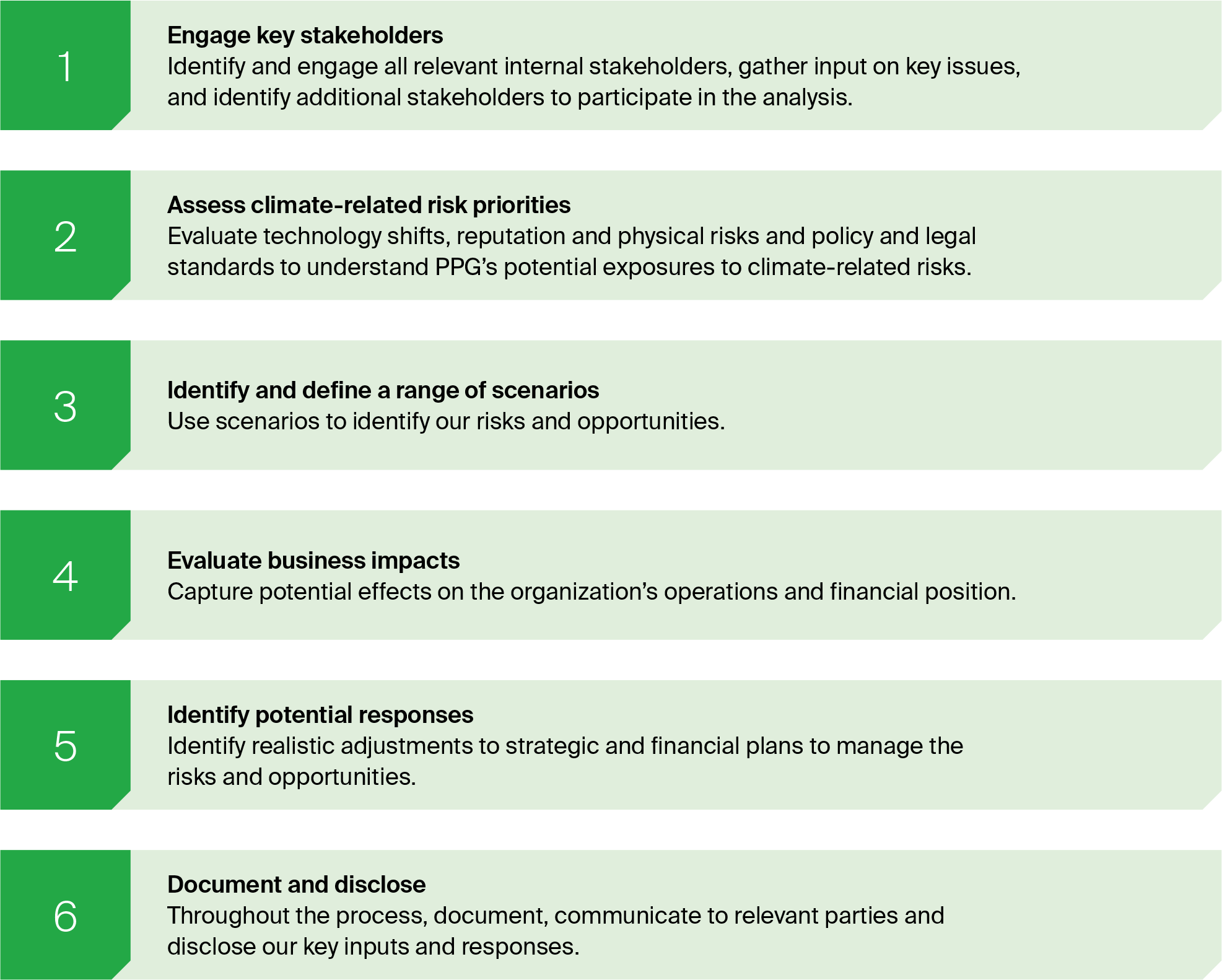Climate-Related Risks and Opportunities

Addressing the transition to a low-carbon economy
The global transition to a low-carbon economy presents risks and opportunities for PPG. Transition risks and opportunities include those related to technology, market changes, reputational impacts, as well as regulations and policy changes. In 2023, we advanced our approach to managing transition risk by validating our scope 1, 2 and 3 greenhouse gas (GHG) emissions targets with the Science Based Targets initiative (SBTi). We're committed to reducing our GHG emissions in line with the goals of the Paris Agreement and have aligned our scope 1 and 2 greenhouse gas emissions approach to the reductions necessary to limit global warming to 1.5 degrees C above pre-industrial levels, and aligned our scope 3 approach to a well below 2 degrees C future. Learn more about our science-based targets in the energy and emissions section.
Managing physical risk at PPG facilities

PPG has a rigorous approach to managing physical climate risk across our facilities. We proactively undertake climate change scenario analysis, climate risk modeling and strategic planning based on guidance from the Task Force on Climate-related Financial Disclosures (TCFD). In 2023, we continued to expand our understanding of the physical climate risks that threaten to impact in our operations. Guided by the outcomes of our most recent climate risk assessment, we are implementing infrastructure improvements to mitigate physical risks at those sites that are most threatened by climate change. Learn more about PPG's climate risk management activities on our website.
Meeting market opportunities
PPG customers and users of our products are increasingly aware of the climate impacts associated with their purchases. We have seen growth in the demand for low impact products across our businesses – from homeowners who want low-volatile organic compound (VOC) and water-based paints to supporting automakers at the forefront of the transition to electric vehicles. Throughout the year, we continued to foster partnerships with our customers and work together to develop new, more sustainably advantaged products.
We also have a clear process that allows the sustainability team to work alongside PPG's businesses to identify market opportunities related to climate change impacts. Learn more in our research partnerships and sustainably advantaged products sections.
Tracking climate-related regulations around the world
In 2023, countries where we operate continued to advance climate-related laws and regulations. We have been tracking these developments through our corporate risk management process, including those regulations related to the EU Green Deal. We will continue to monitor emerging legislation that could impact our activities in the future.
Understanding nature-related risks and opportunities

According to the World Economic Forum's Global Risk Report 2024, biodiversity loss and ecosystem collapse are some of the most severe global risks facing humanity over the next ten years. As we innovate new sustainably advantaged products, we see opportunities to meet this moment by developing biobased and nature-positive products and services.
In 2023, our sustainability team worked with an external consultant to conduct a nature-related screening exercise. The exercise aimed to develop an integrated understanding of the many ways that we depend on and impact natural systems, identify any of our activities that have higher risk of impacting natural systems, and to review our management of nature-related impacts.
PPG relies on natural capital across every aspect of our global business. We transform raw materials into high performing paints and coatings, and rely on a range of ecosystem services for everything from access to clean water to flood mitigation around our facilities. We already have an advanced management approach for many of our impacts on nature.
We have a sophisticated understanding of the chemicals we use, and take responsibility for minimizing the environmental impacts from our products. As discussed elsewhere in this document, we track and report on a range of environmental metrics including water use, waste generation and management, energy use and greenhouse gas emissions. The nature-related screen only helps us further develop our approach to managing nature-related risks, impacts and opportunities.
We will continue to advance our understanding of nature-related risks and opportunities over time and will evaluate the evolving work of standard setters to provide guidance going forward.
For more information about how we approach climate-related risks and opportunities, see below.
To learn more about how PPG is addressing climate change, see our Task Force on Climate-related Financial Disclosure (TCFD) index.

